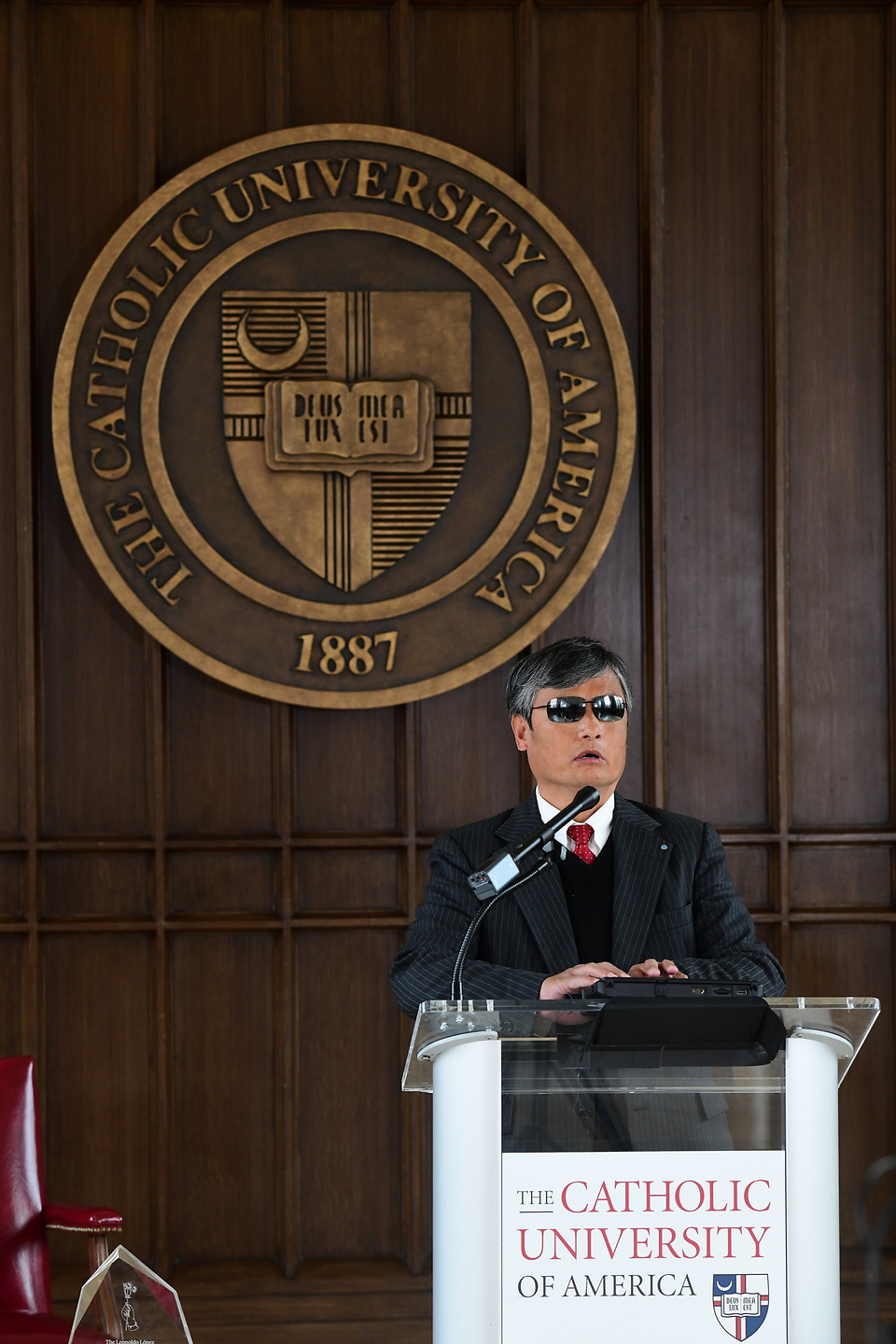

The Lynde and Harry Bradley Foundation announced March 30 that Chen Guangcheng, distinguished fellow of Catholic University’s Center for Human Rights — a renowned human rights activist, scholar, and outspoken critic of the Chinese Communist Party — has been named a 2022 Bradley Prize winner.
The Bradley Prize recognizes individuals whose outstanding achievements reflect The Bradley Foundation’s mission to restore, strengthen, and protect the principles and institutions of freedom and American exceptionalism. Guangcheng will receive the award at the 18th annual Bradley Prizes ceremony on Tuesday, May 17, at the National Building Museum in Washington, D.C.
“At a time when citizens are questioning American exceptionalism, Chen’s remarkable life story reminds us that our country must continue to be a beacon of hope and freedom around the world,” said Rick Graber, president and CEO of The Bradley Foundation. “As a Chinese dissident, Guangcheng has shown remarkable resilience and heroic courage in the face of persecution. The Bradley Foundation is proud to honor him for his fight to advance freedom.”
This year’s award winners were chosen by the Bradley Prizes Selection Committee, which included notable leaders in various fields, after careful review of more than 100 distinguished nominations. Each award carries a stipend of $250,000.
“I thank the Bradley Foundation for this wonderful award. I accept it on behalf of the Chinese people who are denied their freedom and human rights by the Chinese Communist Party. I thank America for being a model for the whole world of a society under the rule of law. I am certain that one day the Chinese people will throw off the rule of the CCP and become a constitutional democracy like America,” Guangcheng said.
The son of a poor farmer in a remote village in Shandong, China, Chen was left permanently blind by illness as an infant, and his family had few resources to support him. Despite his disability, he was determined to educate himself, eventually learning to read and write at age 18 when he began attending a school for the blind. Over time, with the help of his close family, he taught himself law and began working on legal cases related to issues of civil rights and disability.
In 2012, Guangcheng left China for America. Since then, he has been ceaseless in his efforts to alert the world to the dangers of the Chinese Communist Party, speaking to audiences from Japan to Norway, writing for both English and Chinese news outlets, and giving interviews and analysis on the political situation in China and on the US-CCP relationship. His memoir, The Barefoot Lawyer: A Blind Man’s Fight for Justice and Freedom in China, was published in 2015 and has been translated into more than 10 languages.
“We are honored to have Guangcheng as a distinguished fellow of the Center for Human Rights,” noted William Saunders, the center’s director. “Our work focuses on the inherent dignity of each human person. All of Guangcheng’s work — including his own incredible personal story — testifies to this deep Catholic insight, that totalitarianism must be resisted, that the human person can never be sacrificed for (purportedly) greater goods.”
Since beginning his advocacy work, Chen has been the recipient of numerous awards including Time Magazine’s 100 Most Influential List (2006), The Ramon Magsaysay Award (2007), The Lantos Human Rights Prize (2012), the UK Parliament’s Westminster Award (2013), the Geneva Summit for Human Rights and Democracy Courage Award (2014), and the Leopoldo Lopez Freedom and Democracy Award from Kenyon College (2021).